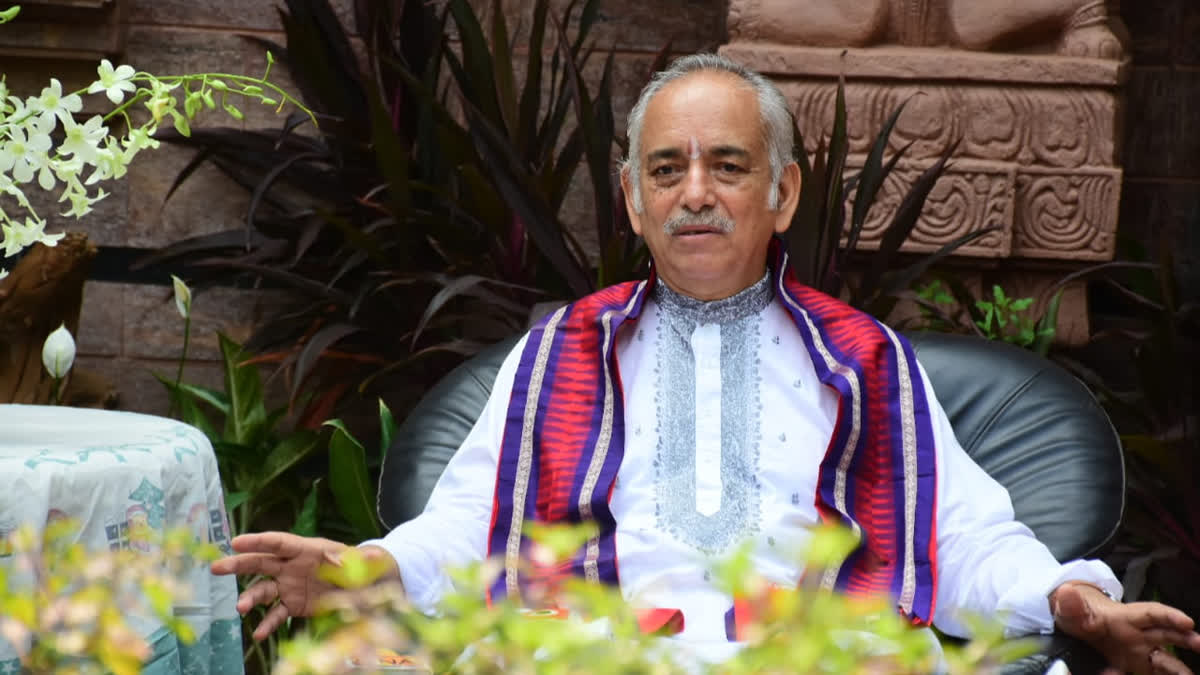Bhubaneswar/Puri : Gajapati Maharaja Dibyasingha Deb has raised strong objections to the International Society for Krishna Consciousness (ISKCON)’s plan to hold a Rath Yatra for Lord Jagannath in Houston, Texas, on November 9, ahead of the traditional festival period in June or July. Addressing a press conference on Tuesday, the Puri King announced his intention to pursue legal action to prevent the deviation, which he says undermines the sanctity of one of Hinduism’s most revered festivals.
“Religious festivals are observed with strict adherence to scriptural guidelines in Sanatana Dharma,” Gajapati Maharaja emphasized. “Just as Christmas or Eid dates are not arbitrarily changed, the Rath Yatra of Lord Jagannath must also follow traditional dates. We will seek legal recourse if necessary.”
He further said ISKCON follows Vaishnavism, which is dedicated to the devotion to Lord Krishna. They keep Lord Jagannath as subsidiary God in their belief system. "I would urge them not to use Lord Jagannath for the sake of propagation of their belief system. Sri Jagannath Mahaprabhu comes out of the temple only twice a year, once for Snana Yatra and the other for Rath Yatra. So it is unfair for the ISKCON to carry Him out for their propagation yatras, which they do frequently," the Gajapati added.
Law Minister says Gajapati's decision final
The state government will support the decision of Gajapati Maharaja and the temple administration, said Law Minister Prithviraj Harichandan. "We will not let Jagannath culture be compromised. Everything associated with the Trinity has special customs and traditions and all these are deep-rooted. People across the world cannot organise one-day Rath Yatra as per their wish. The ISKCON has cancelled its Snana Yatra and we hope they abide by the rules of the Puri temple and cancel their unscheduled Rath Yatra. If they do not agree, we will support the decision of the Gajapati Maharaj and temple administration," he asserted.
ISKCON’s Rath Yatra Timing Sparks Controversy
The controversy centers on ISKCON’s decision to hold the chariot festival outside the traditional calendar. According to Hindu scriptures, the Rath Yatra should be celebrated on the second day (Dwitiya) of the Ashadh Shukla fortnight, typically in June or July. ISKCON’s Houston temple, however, has scheduled the event in November, which has drawn strong opposition from traditional Hindu leaders, including Puri Shankaracharya Swami Nischalananda Saraswati, who warned that altering the festival’s timing diminishes its spiritual essence. “If the event is not held as per scriptural rules, it loses its true significance, reducing it to mere ritual or publicity,” he stated.
Historic Adherence to Tradition
As the King of Puri and the temple’s chief custodian, Gajapati Maharaja has been a long-time advocate for honoring the festival’s traditional schedule. He recounted ISKCON’s history of organizing Rath Yatras outside the traditional schedule, dating back to 1967 when ISKCON held its first chariot festival in San Francisco, California. Since then, ISKCON has conducted similar events in various countries, often deviating from the prescribed dates.
“We have protested these unsanctioned Rath Yatras since the 1980s,” he said, adding that both ISKCON and religious authorities were formally notified during that period. He highlighted a specific instance in October 2007, when ISKCON organized a one-day Rath Yatra in Louisiana, USA, followed by another in Delhi a few months later—both of which he said disregarded traditional scripture and wealth management principles.
“Key rituals, like the Snana Purnima and Rath Yatra, must be observed according to scripture. Violating these dates goes against the very essence of the festival,” he asserted explaining that, in February 2008, the Governing Committee passed a resolution on the matter and urged ISKCON’s General Council to respect these traditions worldwide.
Since 2022, ISKCON’s Governing Council has committed to holding Rath Yatras on traditional dates within India. However, the one-day Rath Yatras continue to be scheduled on alternate dates outside India, which remains a point of contention among Jagannath devotees and custodians of temple traditions.



